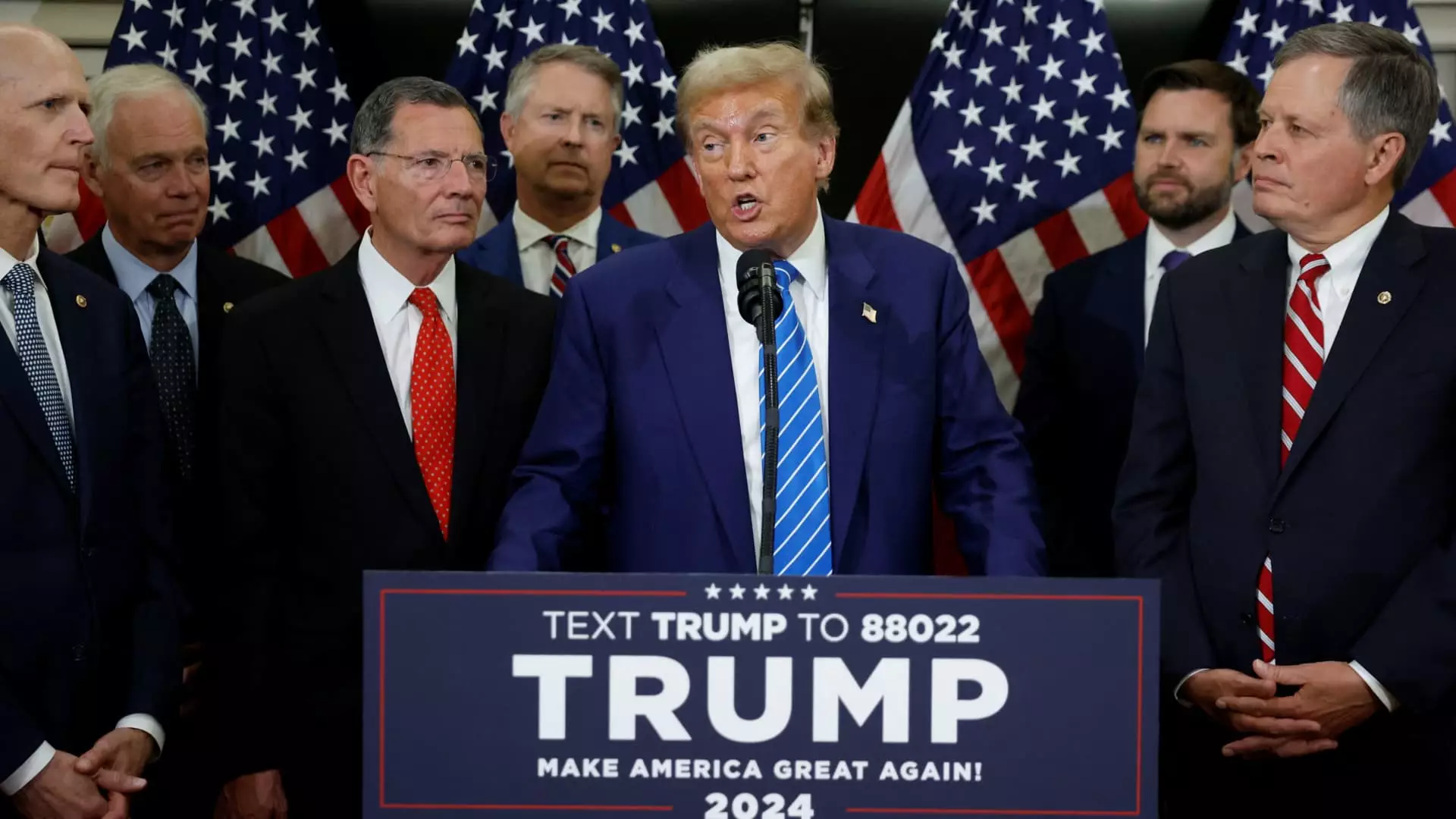During a meeting with House Republicans, former President Donald Trump made controversial remarks about Milwaukee, the host city of the 2024 Republican National Convention. Trump referred to Milwaukee as a “horrible” city and claimed that it is plagued with crime. These comments sparked a backlash from Democrats and led to a flurry of responses from Trump’s allies attempting to clarify his statements.
While the Trump campaign denied that the former President called Milwaukee “horrible,” they acknowledged that he was addressing issues such as violent crime and voter fraud in the city. Several Republican lawmakers who were present at the meeting also refuted claims that Trump made disparaging remarks about Milwaukee. Instead, they sought to provide context and explanations for his comments, with some attributing them to concerns about crime rates or election integrity.
As a key battleground state that Trump narrowly lost to President Joe Biden in 2020, Wisconsin holds significant political importance. The upcoming Republican National Convention in Milwaukee adds another layer of significance to Trump’s comments. The event aims to officially nominate Trump as the party’s presidential candidate, making his statements about the host city particularly noteworthy.
Democrats wasted no time in seizing upon Trump’s comments to criticize him and his administration. Milwaukee Mayor Cavalier Johnson and Wisconsin Democratic coordinated campaign manager Garren Randolph both condemned Trump’s remarks, highlighting the disconnect between his views and the sentiments of the city’s residents. Some Democrats even referenced Trump’s legal troubles, including his recent conviction for falsifying business records, in their responses to his comments.
In response to Trump’s disparaging remarks, Democrats and other supporters of Milwaukee rallied to defend the city’s reputation. They emphasized its vibrant communities, hardworking residents, and diverse neighborhoods, painting a more positive picture of Milwaukee in contrast to Trump’s negative portrayal. Some even took jabs at Trump’s lack of understanding about the city and its culture.
It remains unclear whether Trump will attend the Republican National Convention in Milwaukee to accept his nomination. His scheduled sentencing for charges related to falsifying business records falls on the day before the convention begins, adding a layer of uncertainty to his potential presence at the event. Democrats and critics will be closely watching to see how Trump’s legal issues impact his decisions regarding the convention and his public engagements.
Trump’s comments about Milwaukee have ignited a debate about the city’s reputation, the political implications of his statements, and the broader context of his presidency and legal issues. The responses from Democrats, Republicans, and other stakeholders underscore the deep divisions and tensions in American politics, particularly in battleground states like Wisconsin. As the political landscape continues to evolve, the controversy surrounding Trump’s remarks serves as a reminder of the ongoing challenges and conflicts in the country’s political discourse.

Leave a Reply